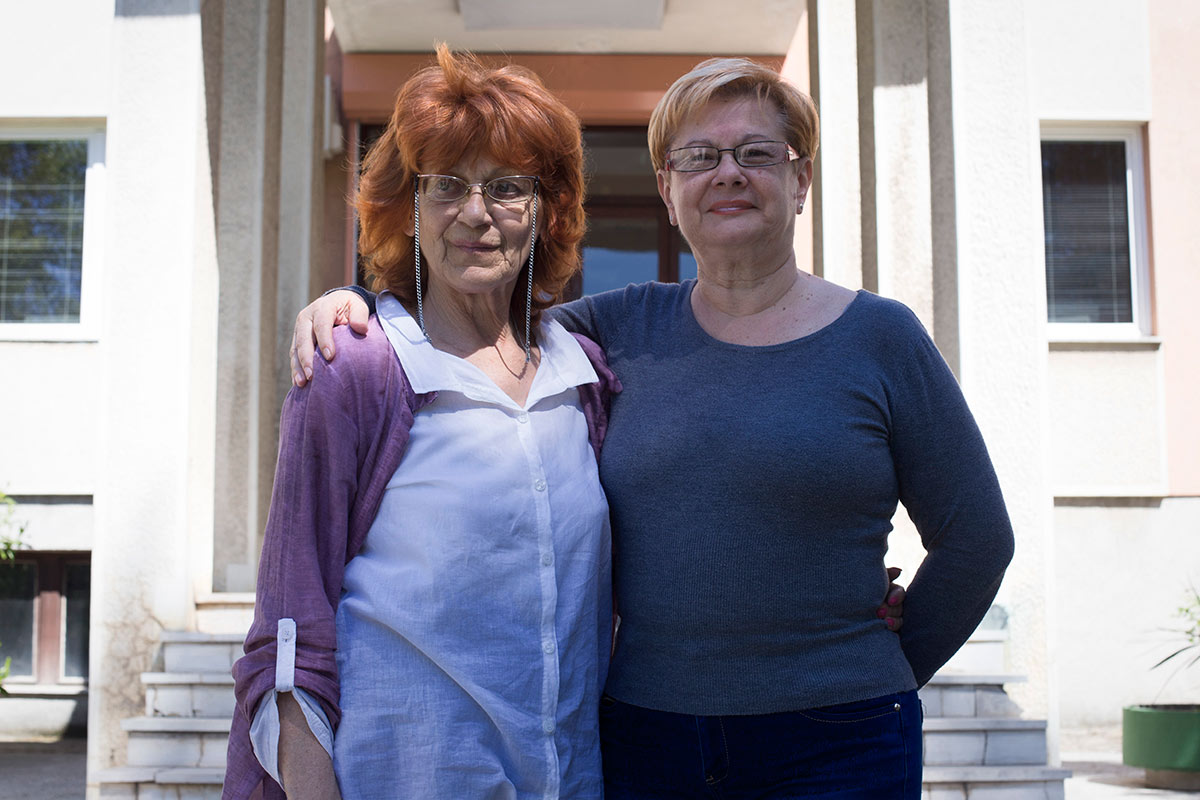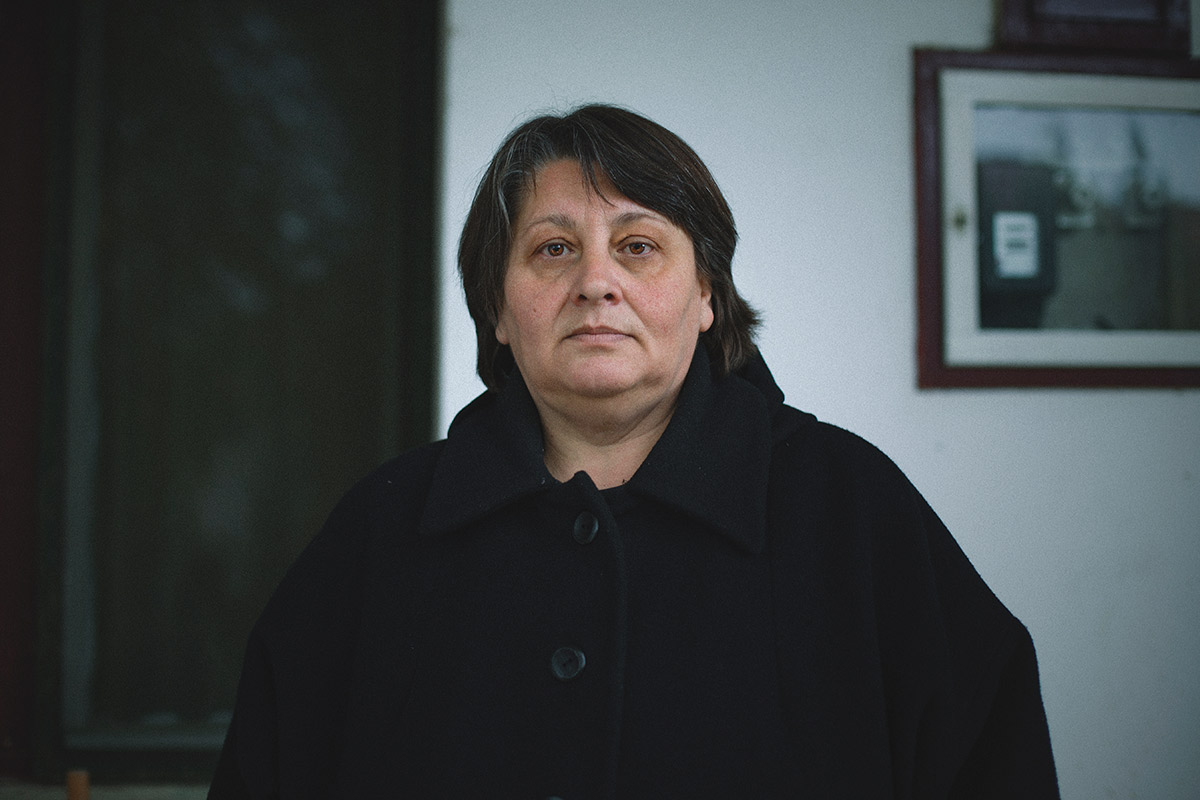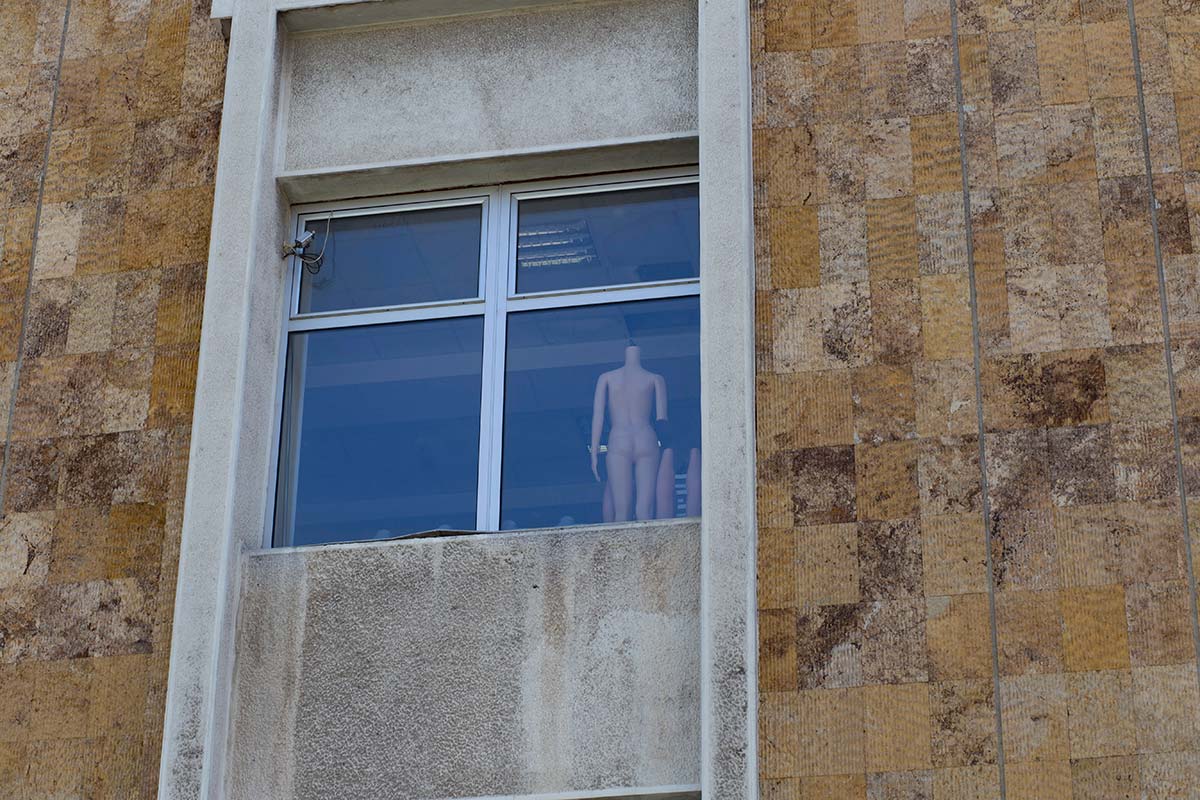
We dedicate the month of May to workers. MILICA magazine had the pleasure of meeting working women all across Serbia. As a testimony of our research, we’ll present portraits of these brave and diligent women, one for every Monday of May.
Ana Božić and Verica Milutinović used to work for “22. decembar” a former Yugoslovian textile giant from Kragujevac. The factory once exported almost 70% of it’s products throughout Europe, and had chain stores and shopping malls in all major cities in Yugoslavia.
Ana Božić worked in a hair salon at one of the factory’s shopping malls, until it was closed down for unusual reasons: it worked too well, and in socialism, it was unacceptable for a hairdresser to earn three times as much as the managing director She was transferred to being a cashier, a job she soon quit in favor of opening up her own salon.
Verica Milutinović stayed an accountant in the factory until it’s violent shutdown. she knows every little detail of the various frauds and illegalities that the factory went through in the process of privatization. It all culminated when protesting workers were brutally thrown out by masked men. Both Verica and Ana are still suing the factory’s new owner over their rightful shares, for which they have given money out of their paycheck for years and never got back.
Verica retired and works at the farmers market to make up for her low income. She sells flowers that she grows herself, “in her garden, and even on the floor of her room”.
They took us through Kragujevac, through the city center and over the bridge then right, to the open gates of the former factory, then back. They told us their stories and impressed us with the strength and courage with which they face their problems, as well as their persistence in “getting what’s theirs”. We support them and thank them for their hospitality!
M.

“Catering is in my genes. First my father, then my husband and I, we kept pushing forward, opening restaurants. It’s what I’ve done my whole life. Then I separated from my husband and business partner and went my own way. I was faced with various taxes, and when you get around to paying them all, you’re left with nothing. No matter how hard I worked, I couldn’t make it, financially. I had to close down”, says M, energetic but upset, remembering her battle to survive as a woman in the restaurant industry.
Defeated, she decided to respond to an ad for a job in a bakery chain, got it, and kept working and moving up for three years. Now she’s a store manager, and her paycheck has doubled. But M does everything: she bakes bread, serves customers, washes dishes, and takes care of the other employees.
“I can’t say it’s damaging, but it’s a lot of work. If I need to work twelve hour shifts- I do. I do Saturdays and Sundays. I work until the job is done. If there’s bread to be baked, I come at four in the morning and bake bread. It’s in my job description to do everything. It’s the same for everyone else. So I have this privilege of I higher paycheck, but I don’t think of it as a reward when it’s something I’ve earned. There’s a lot of responsibility- I can’t call-in sick. I understand this is too much for some people. My children are all grown up, they’re employed, but there are women who have small children and who can’t afford- or don’t want to- spend all their time working. That’s completely understandable. There are very high expectations they’re expected to meet, and when they can’t, they’re forced to leave. Everyone fights for themselves. You should give as much as you expect from yourself”, explains M- a baker with a bright smile who prefers to stay anonymous. We applaud her bravery and perseverance!
MILICA LUPŠOR

They always tell me “Hush, Milica, it could be worse….That woman got beaten up a few days ago, in the field, at least we’re not getting beaten. Those people haven’t been paid for three months— at least they pay us. It’s not much but it’s enough to pay the bills…” Milica Lupšor worked as a lab technician, a milkmaid, an owner of her own textile shop. In the last few years, she spent her days as a seasonal worker— a harvester in the fields around Zrenjanin.
Together with her friends, in 2016, she founded the Association for women’s labor rights “Roza”, and travelled all across Serbia, in an attempt to connect workers in similar situations and experience. She’s aware that this is only a small step in the struggle for dignified working conditions, and political work is yet to come. In a country that has no sensitivity to problems faced by almost 100.000 seasonal workers, not much can be accomplished. But Milica isn’t one to give up: she makes movies, writes articles, works hard to encourage her fellow field workers. She believes that the fear of losing their job, as well as shame, is the main obstacle of a joint struggle. In the field, women work in solidarity, and when it comes to rebellion, they’re always the ones in first row, louder and fiercer than their husbands or male colleagues.
“When women become aware, when they realize they need to fight for themselves, their jobs, their families and children, there’s no one more vigorous than them”, she says, gleaming. Milica will spend the upcoming summer on the fields, but on May 1st, she’s at the forefront of the labour protest.
Related Articles:
STORIES WITHOUT FACTORY


